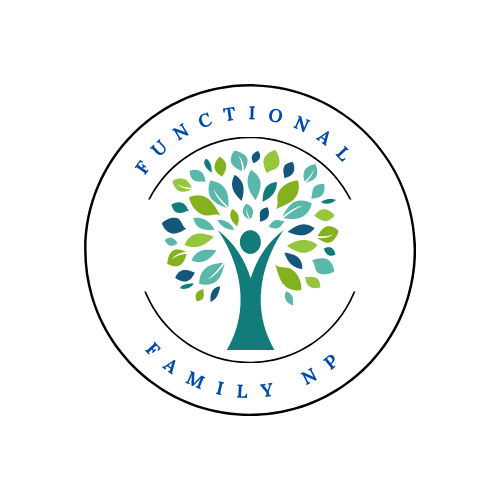Progesterone: The Hormone That Isn’t Talked About Enough!
If you've ever felt like your body was working against you—struggling with restless sleep, mood swings, irregular cycles, or unexplained fatigue—it’s possible you’re dealing with low progesterone. While estrogen often gets the spotlight, progesterone plays an equally vital role in hormone balance, fertility, and overall well-being. Let’s dive into what progesterone does, how it changes throughout life, and what happens when you don’t have enough of it.
What Does Progesterone Do?
Progesterone is often called the "calming hormone" because of its ability to promote relaxation, stable moods, and restful sleep. It’s produced primarily in the ovaries after ovulation and plays key roles in:
Balancing estrogen – Prevents estrogen dominance, which can lead to heavy periods, breast tenderness, and mood swings.
Supporting sleep and relaxation – Activates GABA receptors in the brain, helping you feel calm and promoting deep sleep.
Regulating menstrual cycles – Ensures ovulation occurs and supports a healthy luteal phase (the second half of your cycle).
Aiding fertility and pregnancy – Helps prepare the uterus for implantation and maintains pregnancy in the early stages.
Protecting bones and metabolism – Works alongside estrogen to keep bones strong and regulate insulin sensitivity.
When progesterone levels are optimal, you feel balanced, calm, and energized. But when they drop? Your body lets you know.
How Progesterone Changes Through Life
Progesterone levels fluctuate based on where you are in your reproductive life.
Reproductive Years (Teens to Late 30s)
During your prime reproductive years, progesterone is produced after ovulation each month. However, many women experience low progesterone due to stress, poor ovulation, or conditions like PCOS.
This can lead to:
Irregular or heavy periods
PMS, anxiety, and mood swings
Difficulty sleeping
Mid-cycle spotting
Perimenopause (Late 30s to Early 50s)
This is where progesterone takes a sharp decline. Since ovulation becomes more sporadic, progesterone production drops first—often long before estrogen significantly decreases. Symptoms of low progesterone in perimenopause include:
Increased anxiety and irritability
Restless sleep and waking up at night
Shorter or irregular cycles
Breast tenderness
Migraines or headaches around your period
Menopause and Beyond
Once you reach menopause, progesterone production is almost nonexistent. While estrogen gets much of the focus in menopause treatment, low progesterone can contribute to ongoing symptoms like:
Trouble sleeping
Increased stress and emotional sensitivity
Brain fog
Joint discomfort
Signs You May Need More Progesterone
If you’re experiencing any of the following, your body may be asking for more progesterone support:
Difficulty falling or staying asleep
Anxiety, mood swings, or feeling "on edge"
Irregular or heavy periods
PMS symptoms that seem worse than they should be
Mid-cycle spotting
Worsening headaches or migraines
The good news? There are ways to restore balance and support healthy progesterone levels.
How We Can Help
If low progesterone is impacting your quality of life, we take a root-cause approach to restoring balance. Here’s how we help:
Comprehensive Hormone Testing
We don’t guess—we test. A full hormone panel can help us understand your progesterone levels in relation to estrogen, cortisol, and other important hormones.
Bioidentical Progesterone Therapy
For women who need extra support, supplementing bioidentical progesterone can change everything. This can come in the form of topical creams, oral capsules, or sublingual drops, depending on your unique needs.
Lifestyle & Nutritional Support
Your lifestyle plays a huge role in progesterone production. We guide you on:
Nutrient-rich foods that naturally support progesterone production (hello, zinc, vitamin B6, and magnesium!)
Stress management techniques to prevent cortisol from suppressing progesterone
Quality sleep strategies to enhance hormone balance naturally
If you suspect low progesterone is affecting your well-being, we’re here to help. Book a consultation, and let’s create a personalized plan to get you back to feeling your best.

